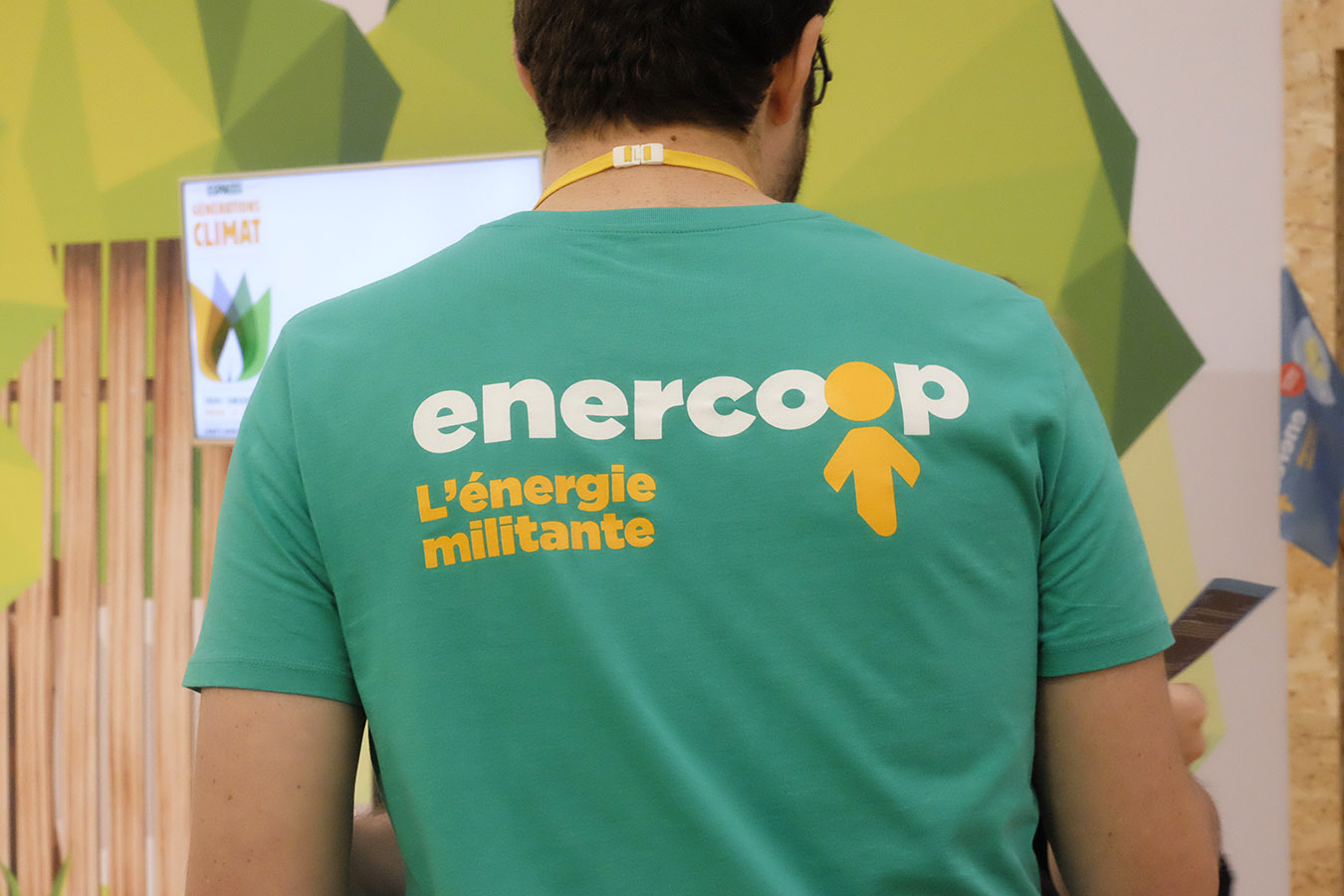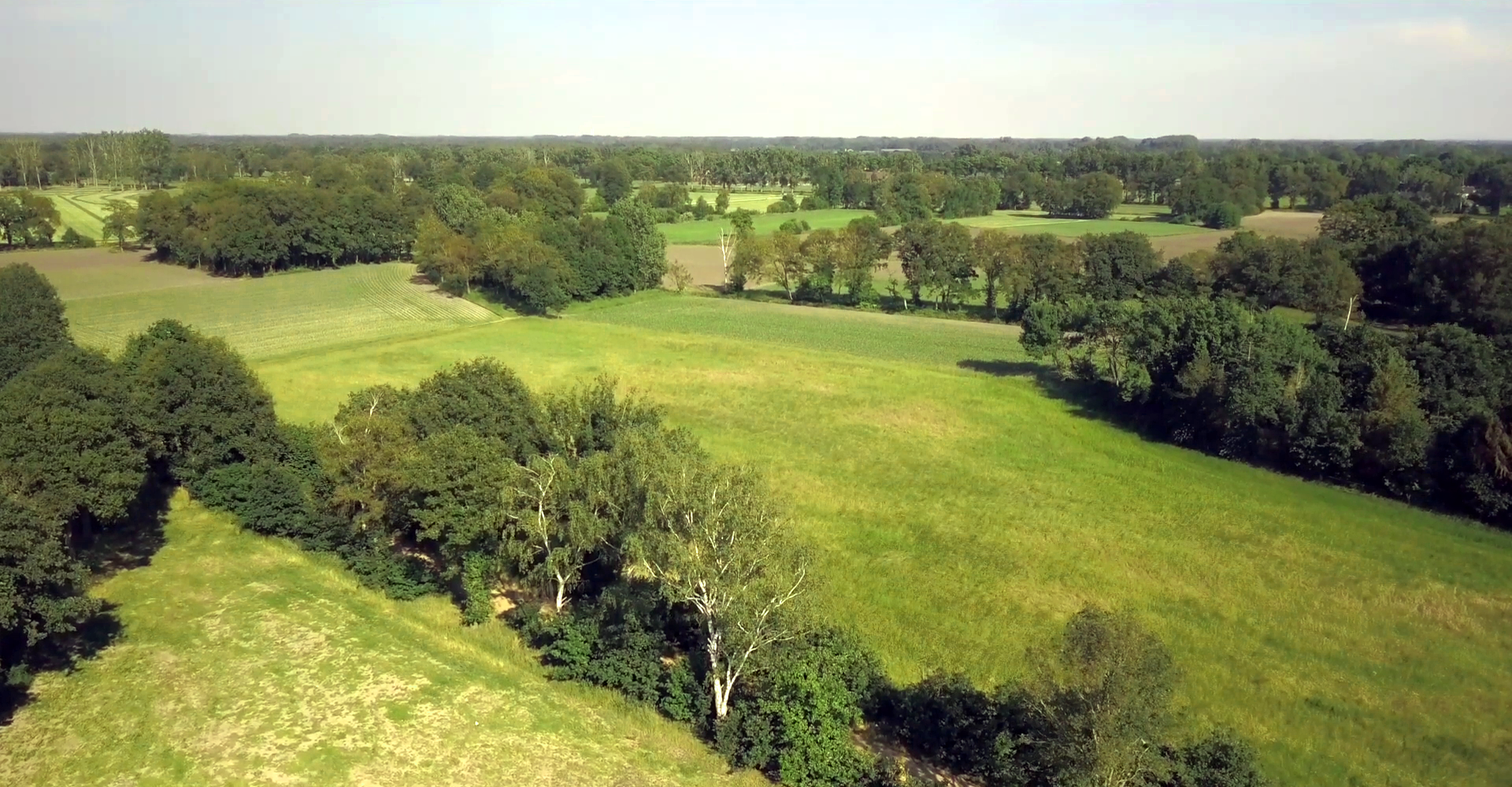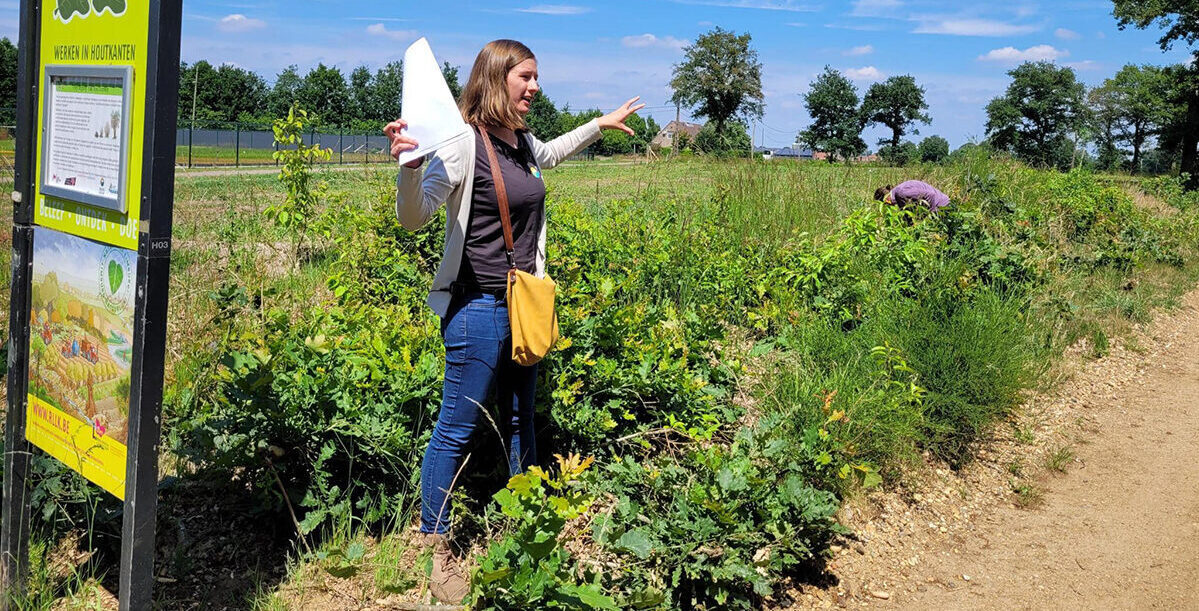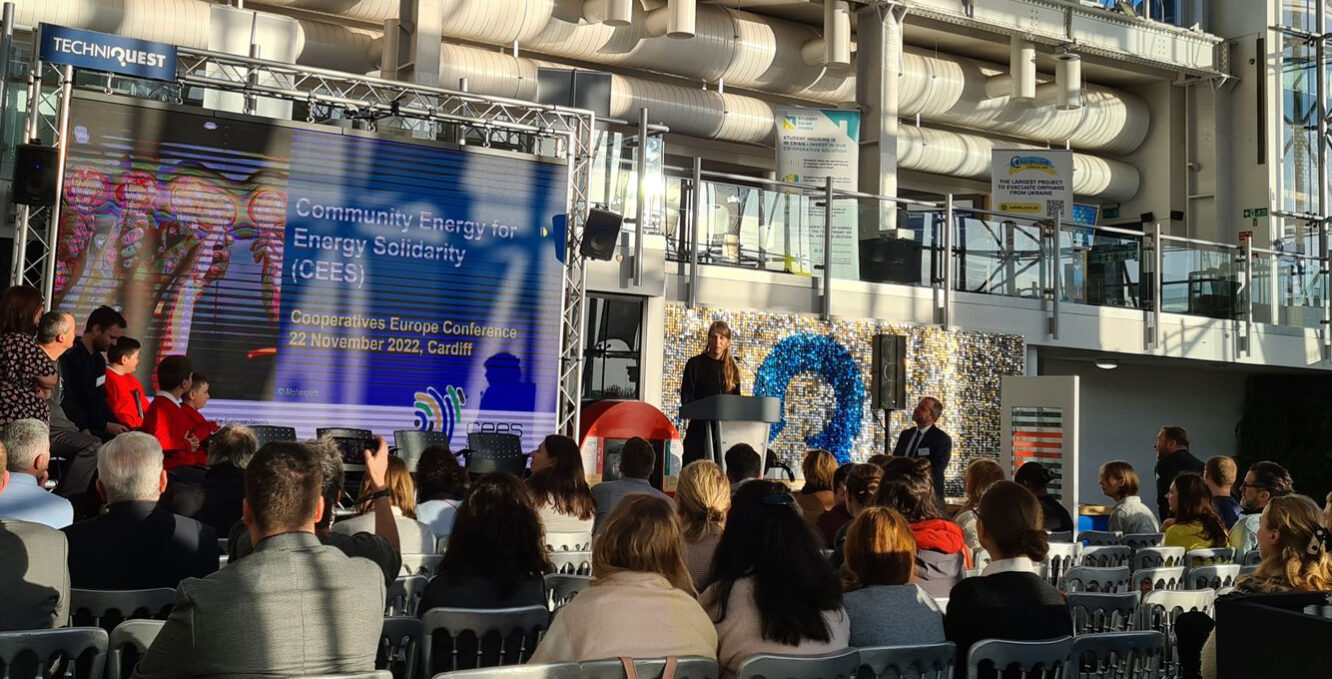Stories
November success story: Collaboration over competition
Community energy is key to action on the climate crisis. It can empower people, boost local economies, and reinvigorate communities. Community-led initiatives play an important part in the transition towards a 100% renewable and just energy future. Success stories of community energy projects can be found all over Europe. At REScoop.eu we want to highlight these stories to further accelerate the movement towards a cleaner and democratic system.
This month we travelled to Cardiff in the United Kingdom to participate in a conference organised by Cooperatives Europe – the European umbrella of all cooperative enterprises. We took the opportunity to reflect on how energy cooperatives cooperate with cooperatives from other sectors. The French energy cooperative Enercoop France and the Belgian cooperative Landschapsenergie are great examples of how these collaborations across sector’s border have multiple benefits.
Cooperation among cooperatives
The sixth cooperative principle reads as follows: “Cooperatives serve their members most effectively and strengthen the cooperative movement by working together through local, national, regional and international structures.” At REScoop.eu we firmly believe in this principle and we have seen many successful examples of cooperation among energy cooperatives from all over Europe. But cooperation is also possible with cooperatives outside the energy sector. Cooperatives from all business sectors share the same values and can help each other and work together while maintaining their independence. They choose collaboration over competition.
Supplying energy to the social and solidarity economy
With 50,000 members, Enercoop is France's largest cooperative energy supplier. Among their 100,000 clients are some social economy organisations and interaction with them usually goes beyond the traditional client/supplier relationship, acknowledges Eugenie Bardin, Enercoop’s public affairs responsible. For instance, Enercoop supplies energy to mutual insurance company MAIF and together they organise workshops on energy issues for MAIF’s members. Both organisations are key players in the social and solidarity economy ecosystem in France and have a long-standing relationship. MAIF raised funds to support Enercoop’s growth in 2017.
The cooperative status of Enercoop, its local dimension, and its energy transition approach are the main reasons why cooperatives from other sectors choose them over other more traditional energy suppliers. Cooperative supermarket Les 400 Coop summarised this very clearly in an interview for Enercoop.

“Enercoop is one of the main alternative electricity suppliers, where social and environmental issues are fully integrated into the company's business model. For Les 400 Coop’s members, it is a simple question of consistency! […] We want organic and local products in our supermarket, and we want to reduce waste. It would have been astonishing if we had chosen an energy supplier that exploits fossil fuels!”
Strengthening links with the cooperative sector in France
In June 2021, Enercoop went further and joined forces with eight cooperatives from other sectors to launch Licoornes, an alliance to build a cooperative public interest offer. Licoornes’ cooperatives operate in highly competitive markets (energy, transport, telecommunications…) and they knew that they would be stronger together. Eugenie explains how the idea of creating the cooperative alliance arose.
“We realised that there was no network or association representing cooperatives with radical messages on the social, environmental and economical transition, so we decided to create the Licoornes coalition, first to communicate together and later to develop bundled offers.”
For the moment, they have only developed common communication actions under the Licoornes brand, but Eugenie already is already seeing high interest from policy makers and media.
A unique multistakeholder collaboration in Belgium
In the Flemish town of Bocholt, a new value chain has emerged thanks to a partnership between a workers cooperative, an energy cooperative and other civil society organisations.
Before the First World War, hedgerows delimiting fields and meadows were characteristic of the Flemish landscape. These hedgerows were cyclically chopped by farmers to use the wood coming out of them. With the advent of cheap fossil fuels after World War II, the economic use of hedges lost its profitability and their management was neglected. However, hedgerows are important for biodiversity.

In 2013, thanks to the Interreg Twecom project, the municipality of Bocholt found a solution to bring the hedgerows back to management and valorise the harvested biomass. Every year, Regionaal Landschap Lage Kempen (the Regional Landscape agency) makes an inventory of the municipal hedgerows and together with the agro-environmental organisation Boerennatuur Vlaanderen and local farmers, they decide which ones need to be chopped – around two kilometres per year. This regular trimming is necessary to maintain the hedgerows’ density.
Local farmers from the Flemish farmers’ cooperative ‘Werkers’ execute the coppicing of the hedgerows and chip the harvested wood to produce around 200 tonnes of wood chips per year. At the beginning of winter, the wood chips are sold by the farmers’ cooperative to energy cooperative ‘Landschapsenergie’, which burns them in a cogeneration installation that produces heat. The local schools, an agriculture test centre and the community hall are connected to the local heat network. They buy local and sustainable heat from the cooperative, closing the circle of this unique collaboration.
Fientje Verbruggen, project manager at Boeren Natuur, one of the organisations involved in the partnership, looks back at nine years of partnership.
“In the beginning, we had a lot of problems with the wood chip boiler, especially for the buyers of the heat because they were the most affected by its malfunctions. They were also a bit skeptical about the price because when Landschapsenergie started, its heat was more expensive than gas. Now the wood chip boiler works well and with the current high gas prices, the heat coming from the cooperative is far better.”

The AgroFossilFree project, a European Union project that aims to pave the way for the de-fossilisation of EU agriculture, recorded the video explaining this partnership that benefits neighbours, farmers, biodiversity and multiple stakeholders.
Cooperatives join forces in Europe
REScoop.eu, as the European federation of citizen energy cooperatives, is a board member and chair of the energy working group of Cooperatives Europe, the European branch of the International Cooperative Alliance. The main objective of our membership is to enable cooperation with cooperatives beyond our own sector. Last week, we participated in Cooperatives Europe’s conference “Young people and the future of cooperation in Europe” to set up the foundation for the work of cooperatives in Europe in the coming years.
Agnès Mathis, Cooperatives Europe director, highlights the value of this cooperation.

“Cooperatives should avoid development in silos. They should seize every opportunity to learn and enrich each other. In fact, collaboration allows them to grow and improve their position in the ecosystem. Only through this way, they will be able to increase knowledge and recognition of their work in the public sphere. This will be essential to develop their potential for a sustainable future in this decade of change. Cooperatives Europe links them together providing a platform to build common projects and frameworks to facilitate knowledge sharing and cooperative development.”
We strongly acknowledge that at local, national, regional or international level, cooperatives are stronger together.